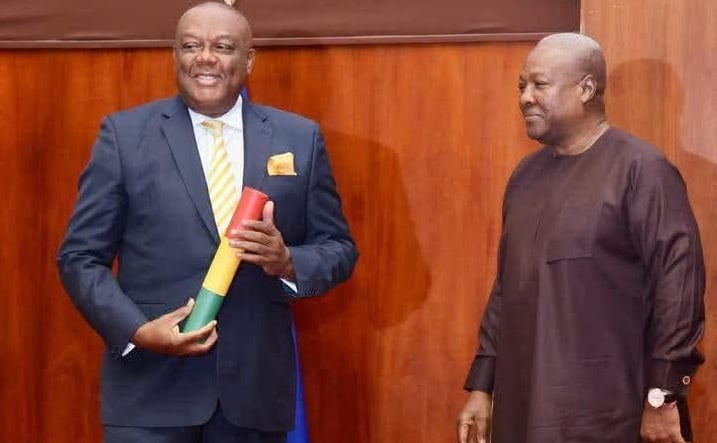The political landscape in Ghana is witnessing subtle yet significant undercurrents as senior figures within the ruling National Democratic Congress (NDC) are reportedly maneuvering to position themselves as potential successors to President John Dramani Mahama. This nascent power struggle, unfolding even before the first anniversary of President Mahama’s current term, has drawn criticism from Ghana’s Ambassador to the United States, Victor Smith, who cautions against premature succession jostling and its potential to derail the government’s agenda.
Ambassador Smith’s concerns center on the timing and potential consequences of such early political posturing. He argues that initiating succession campaigns at this stage is premature and diverts attention from the crucial task of governance and national development. He highlights the risk of the NDC losing focus on its core mandate if internal power struggles overshadow the government’s efforts to deliver on its promises to the Ghanaian people. This, he believes, could ultimately undermine the party’s performance and jeopardize its chances in future elections.
The individuals reportedly engaged in these early succession maneuvers include prominent figures like Chief of Staff Julius Debrah and NDC National Chairman Johnson Asiedu Nketia, both influential personalities within the party structure. While their ambitions are yet to be formally declared, the undercurrents of their alleged campaigns are causing ripples within the political circles, prompting Ambassador Smith’s public intervention. His remarks reflect a growing unease within the NDC that internal competition could undermine party unity and detract from President Mahama’s leadership.
The core of Ambassador Smith’s argument rests on the principle that effective governance requires a unified and focused approach. Premature succession campaigns, he argues, create unnecessary distractions and foster internal divisions, potentially hindering the government’s ability to address critical national issues. He emphasizes the importance of allowing President Mahama the space and support to fulfill his mandate without being prematurely burdened by internal party politics. This, he suggests, is essential for maintaining stability and ensuring effective governance.
Ambassador Smith’s call for restraint is not merely a plea for party unity; it also underscores the importance of prioritizing national development over individual political ambitions. He advocates for a period of focused governance, where the NDC rallies behind President Mahama and works collectively to implement the government’s agenda. He believes that engaging in succession battles at this juncture would be a disservice to the Ghanaian people, diverting resources and attention away from pressing national concerns.
In essence, Ambassador Smith’s message is a call for political maturity within the NDC. He urges party members to recognize the importance of timing and prioritization in political maneuvering. He advocates for a period of dedicated focus on governance, allowing President Mahama to execute his mandate effectively before embarking on internal party contests. This, he believes, is crucial for maintaining party unity, ensuring effective governance, and ultimately serving the best interests of the Ghanaian people. This perspective emphasizes the need for a cohesive party structure that prioritizes national development over individual political ambitions, creating a stable and effective government that delivers on its promises to the citizenry.














